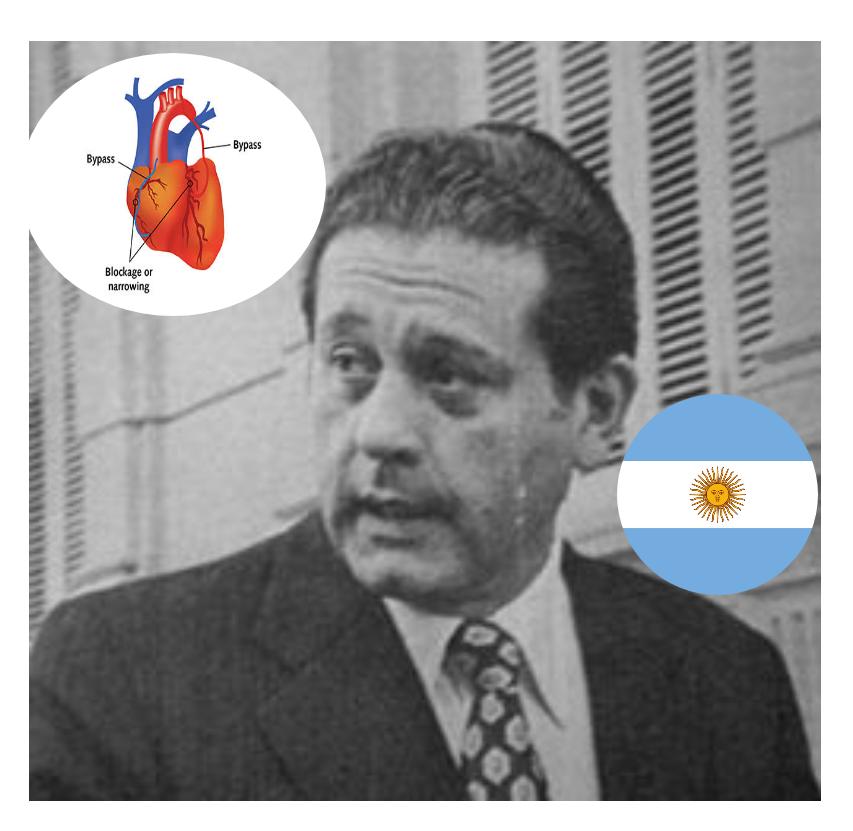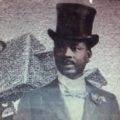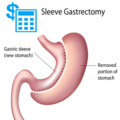René Gerónimo Favaloro, Argentine heart surgeon (born July 14, performed the first documented coronary bypass operation and was the first surgeon to perform successful heart-transplant surgery in Argentina. Favaloro earned a degree in medicine from the National University of La Plata in 1948; he worked as a doctor in the province of La Pampa before moving to the U.S. in 1962 to study thoracic and cardiovascular surgery at the Cleveland (Ohio) Clinic. In 1967, while working at the Cleveland Clinic, Favaloro successfully performed bypass surgery on a 51-year-old woman; the procedure involved hooking the patient to an artificial heart-lung machine, removing a saphenous vein from her leg, and using the vein to form a bypass around blockages in her heart. In 1972 Favaloro returned to Argentina, where he specialized in heart transplant surgery and later established a medical institute—the Favaloro Foundation—in Buenos Aires to promote cardiological research.
Chronicles of His Life
- Born in the Argentinian city of La Plata on July 14, 1923, Favaloro was the grandson of Italian immigrants.
- His father, Juan Favaloro, was a carpenter and his mother, Ida Raffaelli, a dressmaker.
- Growing up, Favaloro developed a close connection with his uncle who was a general medical practitioner. He would often accompany him to the hospital, and it was due to this exposure that he later decided to pursue a medical career.
- Favaloro received his secondary education in the famed Colegio Nacional of La Plata, seen at the time as one of Latin America’s top schools. He always referred to that period with pride.
- Favaloro then began his studies at the Medical Science Faculty of La Plata University, where he graduated in the late 1940s at the top of his
Tremendous effort
- Following his graduation, Favaloro applied for a position at the Rawson Hospital in the capital, Buenos Aires. But the offer he received required him to join the ruling Peronist Justicialist Party.
- Favaloro did not accept the offer and decided to leave Buenos Aires. “The main one [reason] being my refusal to sign a political declaration supporting the ‘national doctrine’, an essential requirement at the time for any position at the University Hospital,” he wrote.
- Favaloro found himself filling in for a doctor whose practice was located in the small town of Jacinto Aruaz, in La Pampa province. His initial plan was to be there temporarily, but the poor conditions he witnessed made him decide to stay longer.
- According to the New York Times, he once said that all doctors in Latin America should be required to work among the poor.
- ”They would be able to see the combination of dirt and fumes,” he said. ”The people have only one room where they cook, they live … where they have their children, where they eat.”
- Favaloro, who had married Maria Antonina in La Plata in 1950, ended up working in the area for more than a decade, helping thousands of patients. During that time, he built his own operating room, trained general and surgical nurses, set up a local blood bank and educated patients on how to prevent common ailments.
- “With tremendous effort and by saving every penny, I was able to build up, from an old house, a clinic with operating facilities, laboratory, and X-ray equipment,” Favaloro was quoted as saying.
‘Opportunity to learn’
- During a visit to La Plata, Favaloro met Professor Jose Maria Mainetti and expressed his interest in cardiovascular procedures. The professor recommended that he visit the Cleveland Clinic in the United States.
- Despite his initial doubts about leaving his post as a rural physician, Favaloro decided to travel to Cleveland, believing the knowledge he would acquire there could help him make a great contribution.
- “In my broken English, I managed to explain the reason for my trip … [in that time] I could only be accepted as an observer, without receiving any payment,” Favaloro wrote.
- “Because I had been able to save money, I pointed out that I was not asking for a salary but for an opportunity to learn,” he added.
Pioneering procedure
Coronary bypass is a technique in which an artery or vein is removed from a leg and attached to the aorta to allow blood flow to the heart, bypassing the obstructed artery or arteries While in the US, Favarolo developed a close relationship with Dr Mason Sones who taught him to read and interpret coronary and ventricular images.
In 1967, he performed one of his most important surgeries. While working at the Cleveland Clinic, he saved the life of a 51-year-old woman who had a potentially deadly coronary artery blockage. The procedure involved attaching her to an artificial heart-lung machine, removing a saphenous vein from her leg, and using the vein to redirect blood flow around the blockage.
The operation, the first of its kind to be reported in a medical journal, was a success. Over the following years, the Cleveland Clinic became a global centre for cadiac surgery, attracting patients and surgeons to Favaloro’s operating table.
How did René Favaloro die?
Despite his success in the US, Favaloro decided to return to his beloved Argentina in 1971. It was a difficult decision. I gave serious thought to this matter and finally considered that my work and my duties were needed in Latin America,” he wrote.
“One day in October, late in the afternoon, I wrote my letter of resignation … I closed the envelope with tears in my eyes and left it on his desk. I wrote: ‘… as you know, there is no real cardiovascular surgery in Buenos Aires …. I am going to dedicate the last one-third of my life to build a thoracic and cardiovascular centre in Buenos Aires,'” he added.
Favaloro was welcomed in Argentina as a famous surgeon and soon became a local hero. He raised money for a $55m medical institution called the Favaloro Foundation, in which he treated thousands of patients – the majority free of charge – while also training hundreds of surgeons.
Over the years, he received a number of suggestions to run for president and was a member of a commission formed in 1983 to investigate the disappearance of more than 6,000 Argentinians under a military dictatorship. However, with time, the Favaloro Foundation began experiencing financial difficulties. In a letter to the editor of La Nacion newspaper on July 29, 2000, he wrote that other hospitals and state-owned medical centres owed the foundation $18m.
I am going through the saddest period of my life,” Favaloro wrote. ”In the most recent times, I have been turned into a beggar.” A few days later, on August 1, at the age of 77, Favaloro’s secretary found his body in his apartment in Buenos Aires. There was a wound in his chest and a gun was found near his body. Police said his death was a suicide. After Favaloro’s death was discovered, President Fernando de la Rua declared a national day of mourning.






